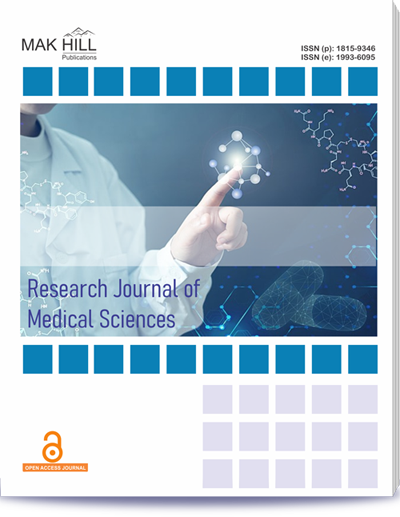
Research Journal of Medical Sciences
ISSN: Online 1993-6095ISSN: Print 1815-9346
Abstract
Jaundice occurs in India between 0.4 and 0.9 times per 1000 live births. Jaundice is linked to 10% of maternal deaths during pregnancy and it has a dire prognosis for both the mother and the fetus. to evaluate the effects of jaundice on a pregnant patient's fetal and maternal outcomes in a tertiary care hospital. This study is observational in nature. It is held at Medical College & Hospital, Kolkata for a duration of one year. This study included sixty‐five patients. This study included sixty‐five patients. There have been 65 confirmed cases of jaundice interfering with pregnancy. Pregnancy‐related jaundice affected 0.4 of every 1000 births. 38.5% of women are multigravida and 61.5% are primigravida. 55.9% of them were delivered via LSCS and 45.24% were delivered vaginally. There were 15 preterm babies and 44 term babies. 50.8% of those were boy and 49.2% of those were girls. Of the 24.61% rate of maternal complications, 8 cases involved mother death. 7.6% of IUD diagnoses and 91.5% of live births were recorded. Jaundice‐related pregnancy complications are associated with higher rates of maternal death and morbidity in developing countries such as India. They have a significant impact on the outcomes of both the mother and the fetus. Therefore, it is essential to increase public awareness of the benefits of routine prenatal care, health education, early diagnosis and prompt treatment in order to improve many situations and offer favorable outcomes for the mother and the fetus.
How to cite this article:
Supriyo Halder. Fetomaternal Outcome in Jaundice in Pregnancy.
DOI: https://doi.org/10.36478/10.59218/makrjms.2024.3.311.316
URL: https://www.makhillpublications.co/view-article/1815-9346/10.59218/makrjms.2024.3.311.316